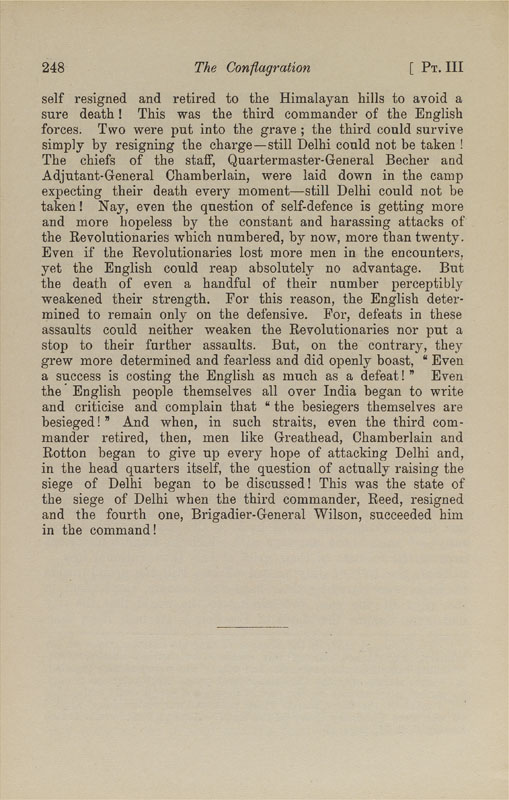248
The Conflagration
[ Pt. Ill
self resigned and retired to the Himalayan hills to avoid a
sure death I This was the third commander of the English
forces. Two were put into the grave ; the third could survive
simply by resigning the charge—still Delhi could not be taken !
The chiefs of the staff, Quartermaster-General Becher and
Adjutant-General Chamberlain, were laid down in the camp
expecting their death every moment—still Delhi could not be
taken! Nay, even the question of self-defence is getting more
and more hopeless by the constant and harassing attacks of
the Revolutionaries which numbered, by now, more than twenty.
Even if the Revolutionaries lost more men in the encounters,
yet the English could reap absolutely no advantage. But
the death of even a handful of their number perceptibly
weakened their strength. For this reason, the English deter¬
mined to remain only on the defensive. For, defeats in these
assaults could neither weaken the Revolutionaries nor put a
stop to their further assaults. But, on the contrary, they
grew more determined and fearless and did openly boast, ^ Even
a success is costing the English as much as a defeat! " Even
the English people themselves all over India began to write
and criticise and complain that " the besiegers themselves are
besieged!" And when, in such straits, even the third com¬
mander retired, then, men like Greathead, Chamberlain and
Rotton began to give up every hope of attacking Delhi and,
in the head quarters itself, the question of actually raising the
siege of Delhi began to be discussed! This was the state of
the siege of Delhi when the third commander, Reed, resigned
and the fourth one, Brigadier-General Wilson, succeeded him
in the command!
I
I
|








